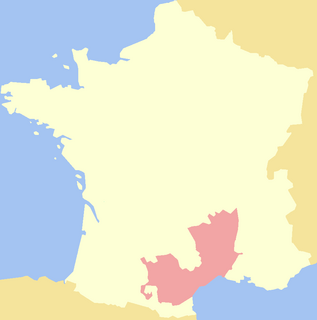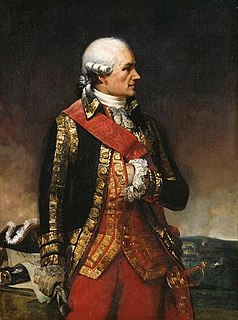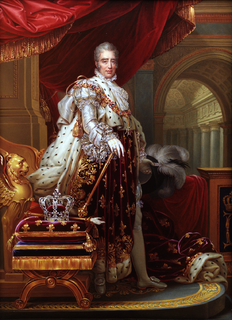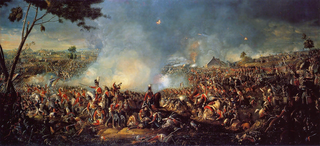
Camille Hyacinthe Odilon Barrot was a French politician who was briefly head of the council of ministers under Prince Louis Napoleon in 1848–49.
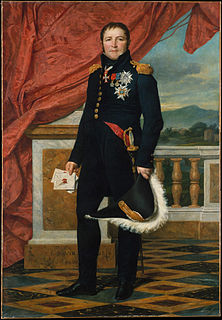
Étienne Maurice Gérard, 1er Comte Gérard was a French general, statesman and Marshal of France. He served under a succession of French governments including the ancien regime monarchy, the Revolutionary governments, the Restorations, the July Monarchy, the First and Second Republics, and the First Empire, becoming Prime Minister briefly in 1834.

Antoine-Vincent Arnault was a French playwright.
Dejean is a surname. Notable people with the surname include:
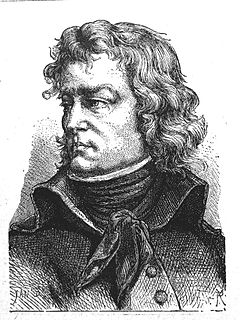
Jean Baptiste Camille de Canclaux was a French army commander during the French Revolution and a Peer of France. He joined a cavalry regiment the French Royal Army in 1756 and fought at Minden in the Seven Years' War. He attained the rank of maréchal de camp in 1788 and lieutenant general in 1792. He commanded the Army of the Coasts of Brest from May until October 1793 fighting several actions during the War in the Vendée. Replaced for political reasons, he led the Army of the West in 1794–1795. He held interior posts during the rest of the French Revolutionary Wars and under the First French Empire of Napoleon.

General Amédée Louis de Cubières, known as Despans-Cubières, was a French general and politician.
Georges Joseph Dufour (1758-1820) was a French Republican and military commander during the French Revolutionary and Napoleonic wars.
François Dominique de Barberie de Saint-Contest was a French Foreign Minister.

Marie Louis Hercule Hubert Corbineau was a French soldier of the eighteenth and nineteenth centuries.
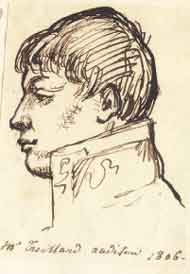
Achille Libéral, count Treilhard was a French lawyer and administrator. He was briefly Prefect of Police in Paris in 1830.
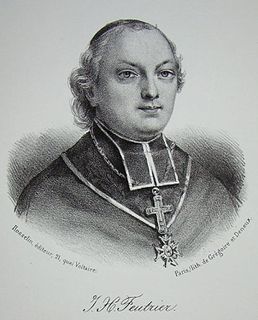
François-Jean-Hyacinthe Feutrier was a French Catholic priest who became Bishop of Beauvais. He was Minister of Religious Affairs from 3 March to 8 August 1829. He caused a storm of protest from the other bishops in France when he signed an ordinance aimed at restricting the influence of the church in schools.

The French Provisional Government of 1814 held office during the transitional period between the defeat of Napoleon followed by the surrender of Paris on 31 March 1814 and the appointment on 13 May 1814 of the Government of the first Bourbon restoration by King Louis XVIII of France.

Guillaume-Xavier Labbey de Pompières was a French politician. He was a deputy in the Legislative Assembly from 1813 to 1815, a representative in the Chamber during the Hundred Days and a deputy from 1819 to 1831.

Charles Joseph Mathieu Lambrechts was a Belgian-born lawyer who became Minister of Justice in France during the French Revolution. Later he was a deputy from 1819 to 1824.
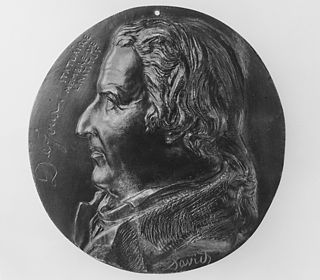
Claude Dejoux was a French sculptor.
Anne François Augustin de La Bourdonnaye briefly commanded three armies during the early years of the War of the First Coalition. An aristocrat, he joined the French Royal Army as a cadet during the Seven Years' War and fought at Villinghausen. He rose through the ranks until he became a maréchal de camp in 1788 and a lieutenant general in 1792. During the Valmy Campaign he was responsible for defending the northeast frontier. He led the short-lived Army of the Interior in September 1792 before taking charge of the Army of the Coasts for two and a half months in early 1793. He transferred to the Pyrenees front and became the interim commander of the Army of the Western Pyrenees in July 1793 before becoming ill and dying a few months later.
Joseph-François-Nicolas Dusaulchoy de Bergemont was a French playwright, writer and journalist.
Jean-François-Marie d'Arquier de Barbegal (1761–1794), also known as de Baumelles, parliamentarian from Aix in the 18th century, was involved in the federalist movement of 1793 during the French Revolution.
André d'Arbelles, was an 18th–19th-century French journalist and high-ranking official.



